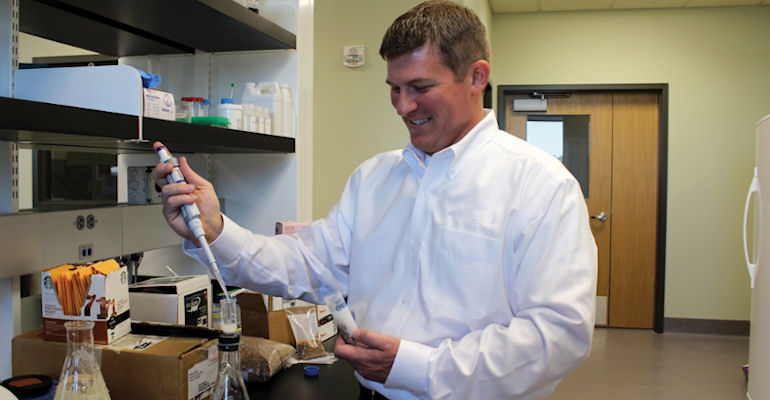SoAR report highlights successful research projects funded by AFRI while the House holds subcommittee hearing on ag research.

Eleven prominent research institutions in the United States joined the Supporters of Agricultural Research (SoAR) Foundation Thursday in urging increased federal support of food and agricultural science. And a House subcommittee also heard about the importance of maintaining a strong agricultural research budget.
SoAR’s new report, Retaking the Field—Empowering Agricultural Sciences for Health, explores the success of research projects funded by the Agriculture and Food Research Initiative (AFRI), the flagship competitive grants program of the USDA’s National Institute of Food and Agriculture (NIFA).
“Scientists have made tremendous strides in keeping our food safe and nutritious,” said Thomas Grumbly, SoAR’s president. “But the federal investment in food science has remained flat as the number of threats to our food system continues to climb. The 2018 Farm Bill will set agricultural funding priorities for the next five years. We all need research to be at the top of this agenda.”
Since 2009, USDA has received less than 4% of the federal research budget, down from almost 40% in 1940.
AFRI presents a strong case for how this lack of funding leaves so much important science “on the cutting-room floor.” Proposals are subject to peer review to make sure that the questions in agriculture and food science can be answered.
Since the program’s inception 10 years ago, only one quarter of all of the grants rated as high-value science have been funded, due to lack of resources. Currently, the program’s annual budget is $375 million, slightly more than half the level authorized in the past two Farm Bills—$700 million.
“Federal agriculture policy is at a place where program budgets are ‘authorized’ in the Farm Bill at levels that are never reached when the federal budgets are negotiated,” Grumbly commented. “There are truly urgent needs to produce more food, fiber and fuel while consuming fewer resources and protecting public health in the face of existing and emerging threats.”
House hearing
In testimony delivered Thursday urged Congress to renew its commitment to funding agricultural research to help America’s farmers feed a growing world population, improve public health and strengthen U.S. national security by ensuring America’s food security.
National Pork Producers Council chief veterinarian Dr. Liz Wagstrom told the House Committee on Science, Space and Technology Subcommittee on Research and Technology that the United States is the “lowest-cost and most technologically innovative producer of food in the world … and has the safest food on the planet” because of the country’s historical commitment to research.
She pointed out that research helped the U.S. pork industry deal with diseases such as Porcine Reproductive and Respiratory Syndrome and the H1N1 influenza virus. But, she added, U.S. agriculture remains vulnerable to emerging and foreign animal diseases. She also pointed to the need to fund a Foot-and-Mouth Disease (FMD) vaccine bank.
Wagstrom also told the subcommittee that the federal commitment to agricultural research seems to have waned recently, pointing out that from 1970 to 2008 50% of the U.S. Department of Agriculture’s budget went to research but by 2013 it was less than 30%.
One factor for that decline, she said, is the increased costs of operating federal research facilities. She asked Congress to ensure adequate funds for operating agricultural research facilities “over and above” research dollars.
Stephen Higgs, director of the Biosecurity Research Institute, also testified regarding the importance of agricultural research.
About the Author(s)
You May Also Like





